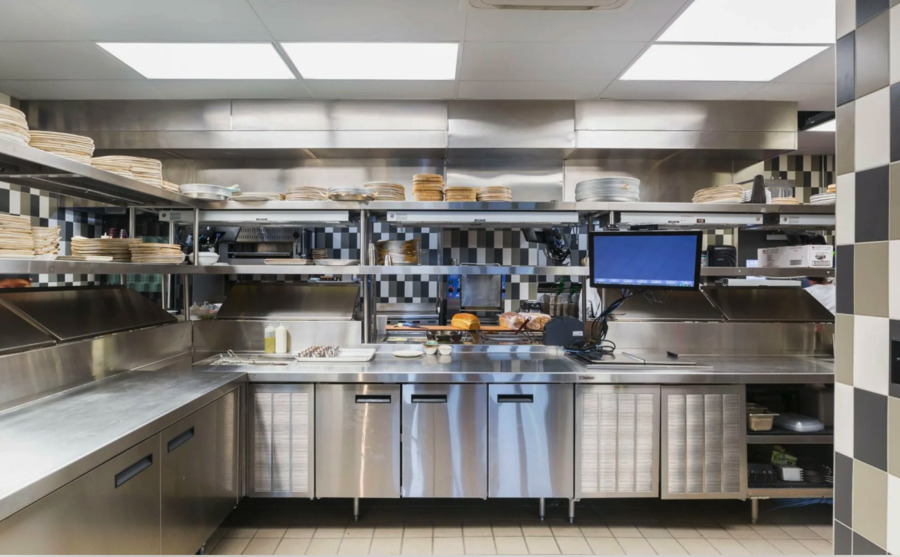How to Properly Care for and Maintain Your Restaurant Kitchenware

In the bustling world of the restaurant industry, the longevity and performance of your kitchen tools can significantly affect both your service quality and bottom line. Proper care and maintenance of your restaurant kitchenware are not just routine chores but are crucial practices that ensure the safety, efficiency, and sustainability of your operations.
Understanding Different Types of Kitchenware
Kitchenware for restaurant businesses encompasses a wide range of items from pots and pans to utensils and cutting boards, as well as larger appliances like blenders and mixers. Each category and material—whether it’s stainless steel, cast iron, ceramic, or plastic—demands specific maintenance strategies to preserve its function and appearance.
Classification of Kitchenware
Differentiating between types of kitchenware is the first step toward effective maintenance. Broadly, kitchenware can be categorized into cookware (pots, pans), utensils (spatulas, knives), and appliances (mixers, grinders).
Material Specifics
Each material has unique properties that dictate the care it requires. Stainless steel is prized for its rust resistance and durability, cast iron for its heat retention, ceramics for their chemical stability, and plastics for their versatility and low cost. However, each requires different cleaning methods and storage conditions to maintain their best condition.

Daily Maintenance Practices
Routine cleaning and proper storage are the pillars of kitchenware maintenance. These practices not only prolong the life of the items but also help prevent foodborne illnesses.
Cleaning Techniques
Cleaning immediately after usage prevents food residue from hardening and harboring bacteria. Use a moderate detergent and warm water to clean most metal and ceramic items, then dry thoroughly to avoid corrosion and watermarks. Delicate items should be hand washed, while durable objects can go in the dishwasher. Knives and high-end equipment may need special attention to avoid damage.
Storage Solutions
Proper storage extends the life of kitchenware by preventing unnecessary exposure to elements that might degrade them. Items should be stored in a clean, dry place and arranged to avoid overcrowding. Cookware often benefits from hanging storage to prevent scratching, while utensils should be kept in a way that prevents edge damage and ensures safety.
Periodic Maintenance and Care
In addition to daily care, periodic checks, and more thorough cleanings are necessary to maintain kitchenware’s optimal condition and functionality.
Deep Cleaning Methods
Depending on usage frequency and kitchenware type, schedule monthly or quarterly deep cleanings. Techniques such as boiling water in pots to loosen old food residue or using specialized cleaners to restore polish to metals can be effective. For grills and griddles, using a grill brick to remove carbon build-up is essential to maintaining a hygienic cooking surface.
Inspection and Repair
Regular inspections can catch issues like cracks, rust, or wear before they lead to failure. Minor repairs, such as sharpening knives or tightening handles, can often be done in-house, while more significant concerns might need professional attention.
Special Considerations for Electronic Equipment
Electronic appliances such as food processors and blenders are integral to modern kitchens but require extra attention due to their mechanical and electrical components.
Maintenance of Appliances
Ensure that all appliances are regularly cleaned according to the manufacturer’s instructions, usually involving disassembly to clean individual parts. Regular servicing, including checking and replacing worn cords or parts, is vital to prevent failures that could disrupt kitchen operations.
Preventive Measures and Best Practices
Taking proactive steps can prevent many common issues associated with kitchenware maintenance.
Preventive Care
Using kitchenware according to manufacturer guidelines will prevent many common forms of wear and tear. For example, not overheating non-stick pans, using wooden utensils on sensitive surfaces to prevent scratching, and avoiding the use of harsh chemicals on reactive metals.
Training Staff
Educating your team on the proper care of kitchenware is crucial. Regular training sessions can help instill best practices and emphasize the importance of maintenance routines, which helps in building a culture of responsibility and care within the kitchen staff.

Addressing Common Challenges
Even with the best care, kitchenware will occasionally fall victim to common issues such as dull blades, persistent odors, or staining. Developing a quick reference guide for dealing with these issues can empower staff to take immediate action, ensuring that problems are resolved quickly and do not affect service.
Leveraging Professional Services
Sometimes, professional help is needed, especially when dealing with high-value or complex kitchenware. Knowing when to call in experts can save time and prevent costly mistakes. Establishing relationships with reliable service providers ensures that it is readily available when professional intervention is needed.
Conclusion
Maintaining your cookware is essential. It makes the kitchen safer and more efficient while extending tool life and saving money. Repeated and meticulously applied procedures help thriving restaurants maintain quality. Implementing these maintenance practices can help restaurant operators keep their kitchens running smoothly and serve great food and service every day.
Basketball fan, dreamer, hiphop head, Mad Men fan and identity designer. Operating at the intersection of simplicity and programing to create not just a logo, but a feeling. I prefer clear logic to decoration.
